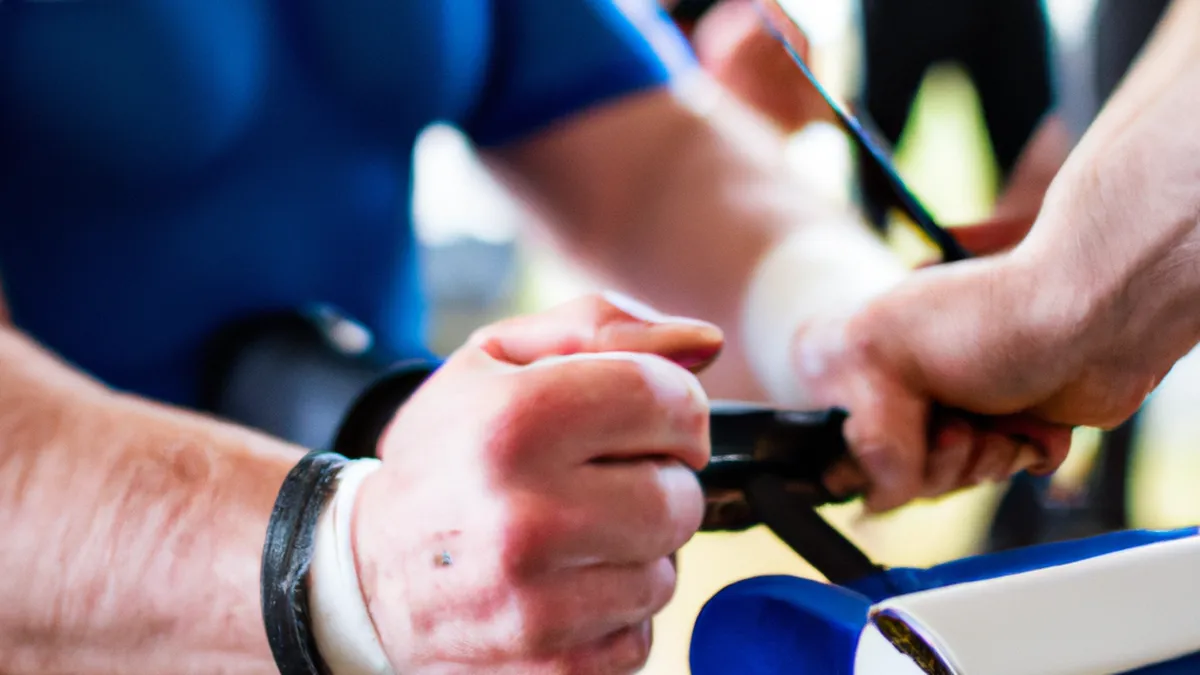Tendon Care Essentials: 8 Key Practices
Communicating the Importance of Tendon Care to AthletesAthletes spend many hours training and competing, pushing their bodies to excel. However, they often neglect tendon care, which is crucial for physical health. Tendons connect muscles to bones and ensure movement, stability, and performance. Ignoring tendon health can cause injuries that jeopardize athletes’ careers. Thus, every athlete, whether amateur or professional, must understand tendon care’s importance.
As an Amazon Associate I earn from qualifying purchases.
Gear tip: consider knee brace, ankle brace, and patellar strap to support this topic.
Why Tendon Care Matters
Tendons face significant stress during training and competitions. Each sprint, jump, and lift exerts immense forces on these tissues. Repeated stress can cause micro-tears in the tendons. Untreated micro-tears may evolve into serious injuries like tendonitis and tendinosis. These injuries can sideline athletes for weeks or months, threatening both performance and long-term careers.Healthy tendons enhance overall performance. Strong tendons improve power transfer during activities, boosting speed and strength. They also stabilize joints, reducing injury risks. Athletes who prioritize tendon care experience better agility and strength, leading to improved performance.
Tips for Tendon Care
1. Warm-Up Properly
A proper warm-up prepares the body for physical activity. It increases blood flow to muscles and tendons, making them pliable. Athletes should spend 10-15 minutes warming up before training or competitions. Dynamic stretches, light aerobic exercises, and sport-specific drills effectively warm up. These activities loosen muscles and enhance flexibility, setting the stage for success.
2. Focus on Strengthening Exercises
Incorporating strengthening exercises into training supports tendon health. Strengthening surrounding muscles offers additional support and stability. This support significantly reduces injury risks. Eccentric exercises lengthen muscles under tension, benefiting tendon health. For example, calf raises, hamstring curls, and eccentric squats enhance tendon resilience and overall strength.
3. Prioritize Rest and Recovery
Rest days play a crucial role in tendon health. Overtraining weakens tendons and increases injury risks without adequate recovery. Athletes should listen to their bodies and take necessary breaks. Incorporating rest days into schedules promotes recovery and allows the body to heal. Active recovery activities like yoga or light swimming maintain mobility without stressing tendons.
4. Stay Hydrated
Hydration significantly impacts tendon health. Water helps maintain tendon function.
Conclusion
Athletes must prioritize tendon care to enhance performance and prevent injuries. Understanding and applying these tips will improve their longevity in sports.
Below are related products based on this post:
FAQ
Why is tendon care important for athletes?
Tendon care is crucial because tendons connect muscles to bones and are essential for movement, stability, and performance. Neglecting tendon health can lead to injuries like tendonitis, which may sideline athletes for extended periods, threatening their careers.
What are some effective ways to care for tendons?
Effective tendon care includes proper warm-ups, strengthening exercises, prioritizing rest and recovery, and staying hydrated. These practices enhance tendon resilience, reduce injury risks, and improve overall athletic performance.
How does hydration affect tendon health?
Hydration plays a significant role in maintaining tendon function. Adequate water intake helps keep tendons lubricated and supports their overall health, which is vital for optimal performance in sports activities.















Post Comment